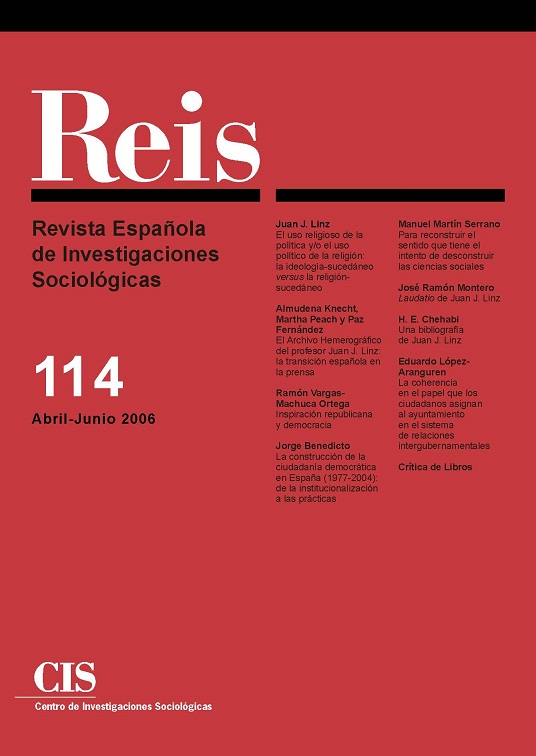By way of reconstructing the sense it makes to attempt to deconstruct the social sciences
DOI:
https://doi.org/10.5477/cis/reis.114.137Keywords:
Sociology of Knowledge, Counter- Utopia, Post-modernity, ProgressivismAbstract
By the end of the 1980s, the distinctive features of counter-Utopic thought that corresponded to the interests of new globalizing imperialism and its view of the world were already configured. There was a reappearance of the concept of man, society and culture that was very similar to those accompanying the first industrial revolution. Pre-industrial counter- Utopia was called progressivism. The globalizing counter-Utopia is post-modernism. Both mythologies are the result of equivalent historical junctures, and have been used to legitimate comparable policies. They announce that social movements are no longer capable of transforming history and are useless, because the new technologies are going to take care of changing people’s way of life. Each time these technocratic models of social action have made their reappearance, so have deconstructive ideologies, whose proposal consists of cancelling all the great paradigms of social science and replacing them with others of their own. Such a plan to deconstruct social science is a reconstruction. Many attempts have been made, and this is also present in theory, to prove that historical memory hinders supremacy and is a hoax. It therefore makes sense to explain and reconstruct it. This offers further evidence that history continues and sometimes repeats itself. In order to demonstrate the sense it makes, the author uses precisely the socio-historical analyses that those who assert that history is over and done with find unpleasant. Some mass-media and academic agencies have been dedicating their efforts to this work of deconstruction for a quarter of a century now. However, there does not seem to be any sign that particular paradigms are an alternative for understanding why and how the world is changing the way it is right now. The conclusion I have reached is that the study topics that were thought to have disappeared continue to exist, and I explain where they are at this moment in time.
Downloads
Downloads
Published
How to Cite
Issue
Section
License
Copyright (c) 2024 Revista Española de Investigaciones Sociológicas

This work is licensed under a Creative Commons Attribution-ShareAlike 4.0 International License.
Permite Compartir — copiar y redistribuir el material en cualquier medio o formato, Adaptar — remezclar, transformar y construir a partir del material para cualquier propósito, incluso comercialmente.








